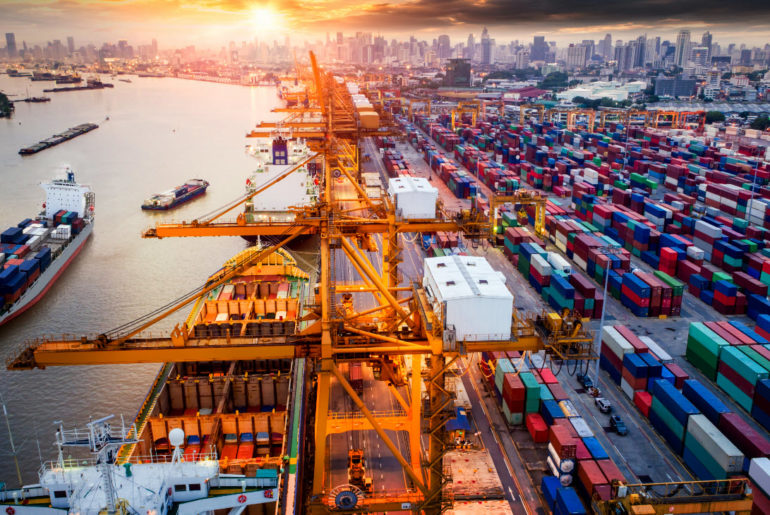The Union Customs Code (UCC) harmonizes the customs laws of the European Union. The UCC stipulates that Member States must impose penalties for failing to comply with customs legislation, and that these penalties must be efficient, proportionate, and dissuasive. Member States must notify the Commission of the penalties that they apply to various acts of noncompliance and of any subsequent amendments to those penalties (if applicable).
A declarant may ask for a change to certain of the data elements in a customs declaration in accordance with Article 173 Union Customs Code (UCC), which is applicable to customs declarations that have already been accepted by customs. The Dutch Customs Authorities (DCA), however, apply a very strict application of Article 173 UCC, stating that amendments are only allowed if the amendments are required by customs legislation. This position taken by the DCA deviates from the practice of the tax authorities of other EU Member States, given the fact that Article 173 UCC does not stipulate that the amendments must be required by law.
Although the formal requirements for bringing goods into the Customs Union of the EU are largely harmonized by EU customs legislation, authorization procedures for bringing goods into the Union vary per Member State.
The Think Tank of the European Parliament has conducted a study into the authorization procedures of the various Member States for entry of goods into the EU, which was published on 19 December 2022. While the Think Tank acknowledges the need for effective customs controls, it also argues that the divergence in the practices of Member States can create efficiency barriers, such as the time needed for customs controls.
On 1 January 2021, a revised version of the German Batteries Act (Batteriegesetz, “BattG”) entered into force. This change was triggered by the fact that the former German system of battery take-back was no longer sustainable. The former legal structure had imposed an unfair burden upon GRS Batterien, Europe’s largest collection scheme, which had become increasingly financially unattractive and therefore had been abandoned by many battery manufacturers who had set up their own take-back schemes.
In our 60-minute webinar on 14 March 2023 at 3:00pm CET, we’ll help in-house counsel and competition leaders track what to keep top of mind for 2023 in emerging markets, including Morocco, Egypt, Turkey, South Africa and Saudi Arabia. We’ll also provide practical takeaways to help navigate the new landscape.
On 26 January 2023 HM Revenue & Customs announced that, as of 1 January 2023, it has nine live Corporate Criminal Offenses investigations for the failure to prevent the facilitation of tax evasion, with a further 26 investigation opportunities under review. These live and potential investigations cover 11 different business sectors including software providers, labor provision, transport, accountancy and legal services.
2023 is gearing up to be an interesting year for those in the life sciences sector, with upcoming reforms to the established regulatory and IP landscapes that will impact innovator strategies in R&D, commercialization, and patent enforcement. While reforms are currently under draft by the European Commission, the key areas of anticipated change are highlighted in a newly published article in The Life Sciences Lawyer.
Pharma companies often employ Medical Science Liaisons (MSLs) in order to provide healthcare professionals (HCPs) with high-quality professional and scientific information that lacks promotional content thereby distinguishing it from the information provided by medical sales representatives.
In a recently published decision, the National Institute of Pharmacy and Nutrition (NIPN) stated that it does not support distinction between professional and promotional communication. This position leaves pharma companies with two options: either to register MSLs with the NIPN as a medical sales representative, or to try to severely restrict the information an MSL may share with HCPs.
European Union, online public access to the Luxembourg register of beneficial owners (RBO) was temporarily suspended.
On 16 December 2022, online access to the RBO was re-established for professionals subject to the amended law of 12 November 2004 on the fight against money laundering and terrorist financing (“Professionals”), such as professionals from the financial and insurance sectors, auditors, real estate agents and developers, persons carrying out a family office activity, notaries and lawyers.
On 1 February 2023, the Luxembourg Business Register announced that all entities registered with the Luxembourg trade and companies register that have made an RBO declaration will be receiving a confidential code allowing them to access their own RBO data and order an RBO extract even though they do not qualify as Professionals.
Energy transition is the biggest change that the world is undergoing right now. The EU is taking significant steps to position itself at the forefront of the global race to net zero.
The EU has a legally binding target to achieve net zero by 2050. EU countries also already have very advanced plans for achieving net zero and energy security, accompanied by financial state support packages on an unprecedented scale. These measures have just been taken to the next level, making the EU an even more attractive market for investors in the energy transition.



